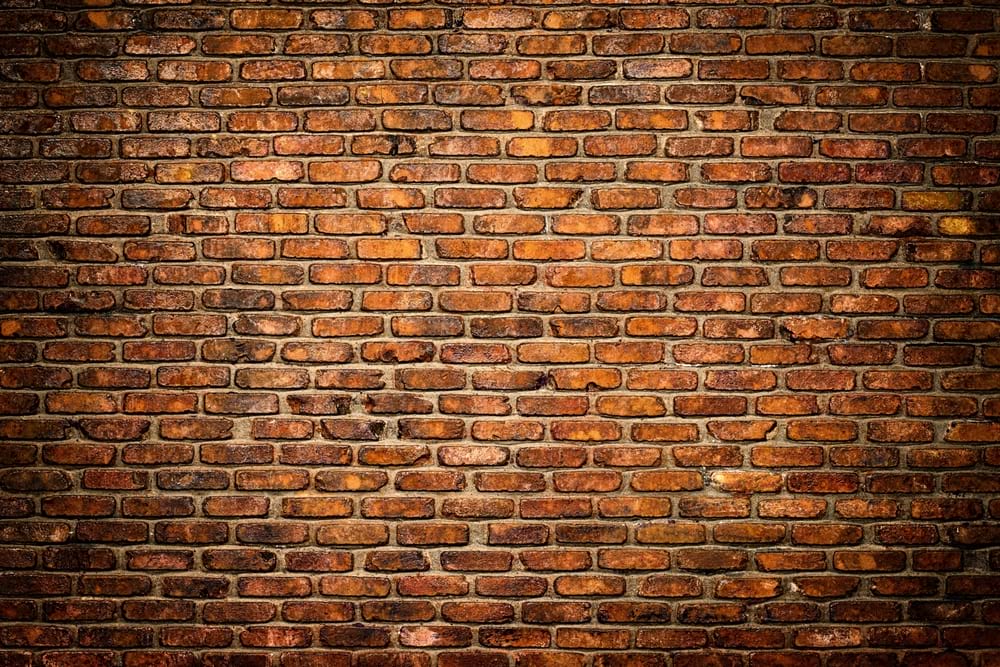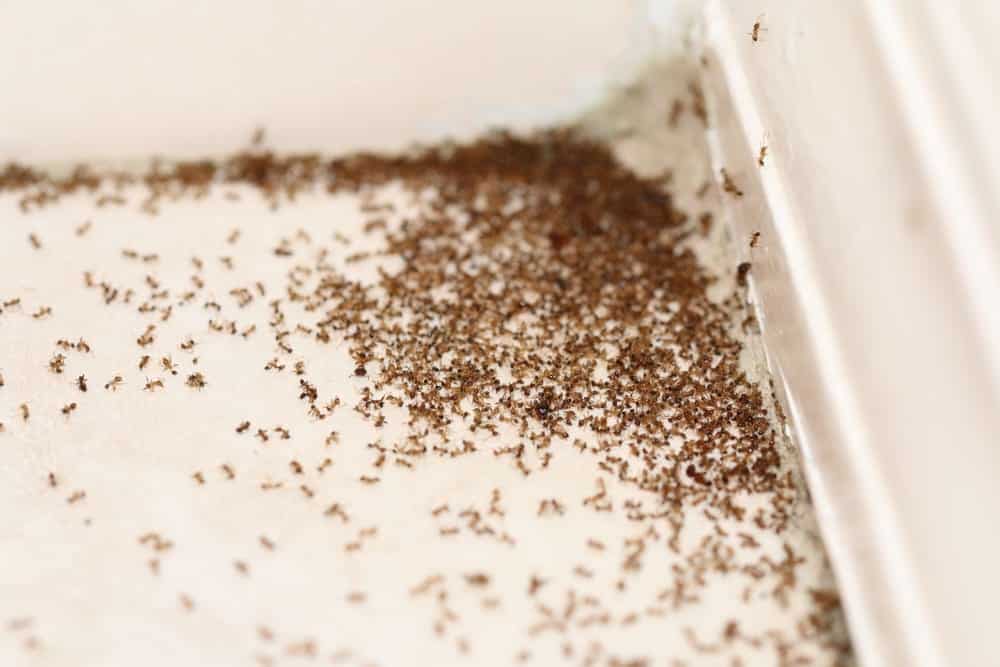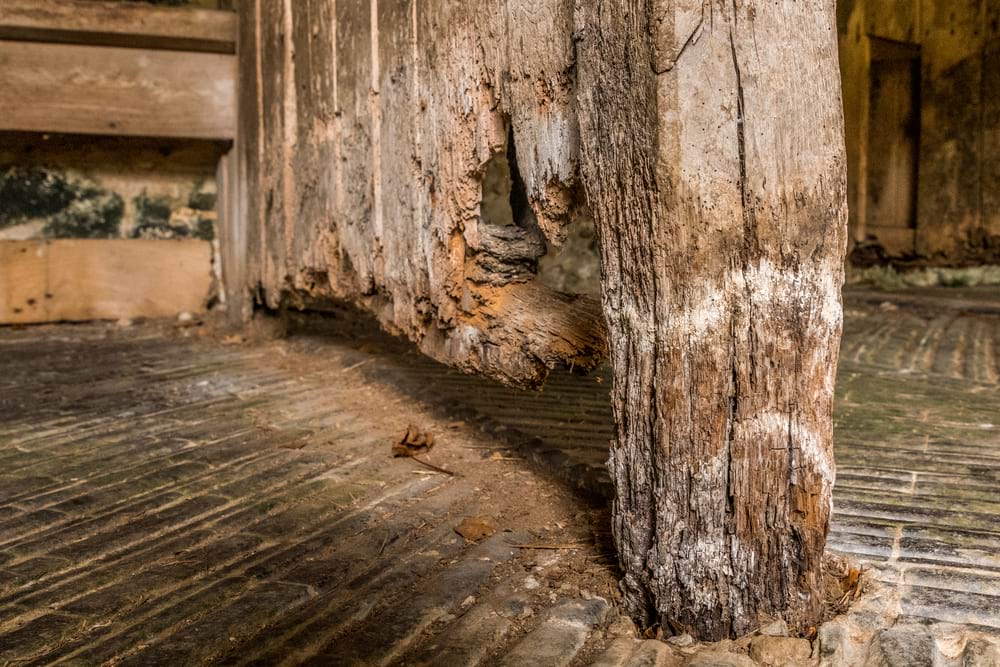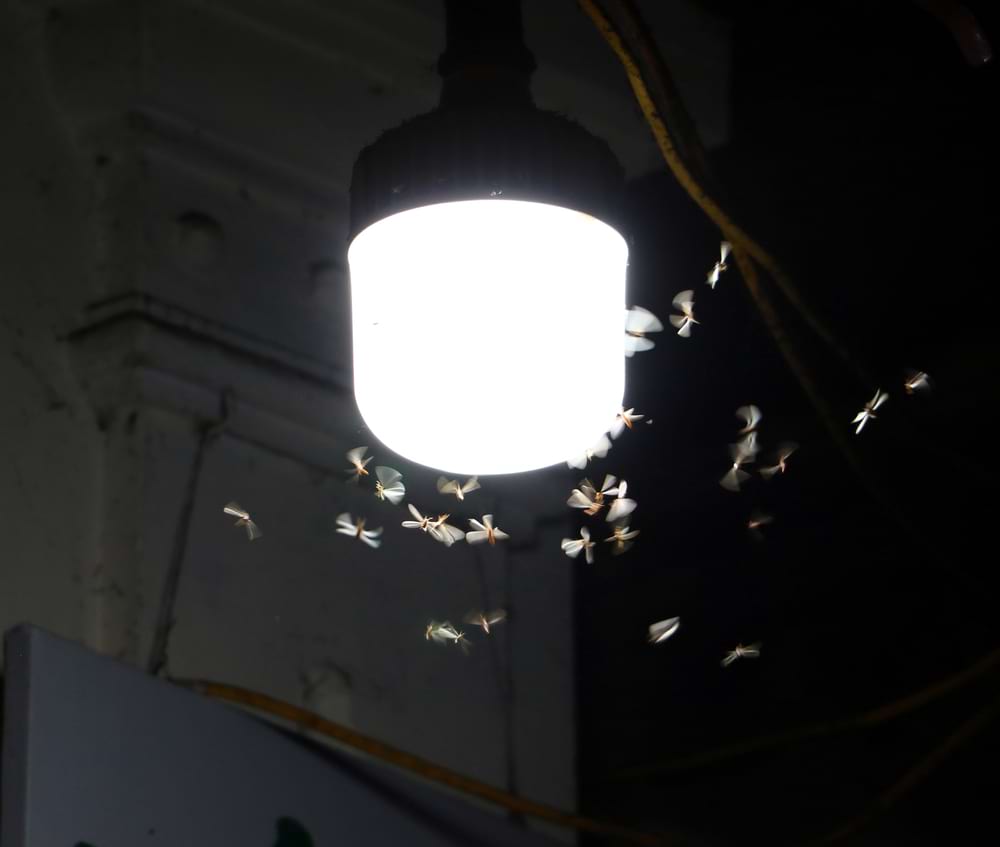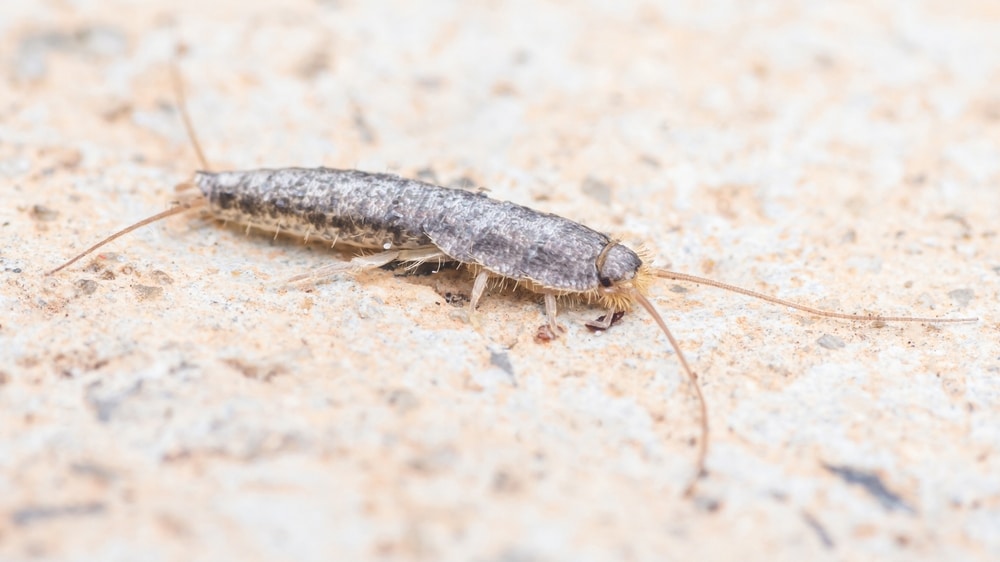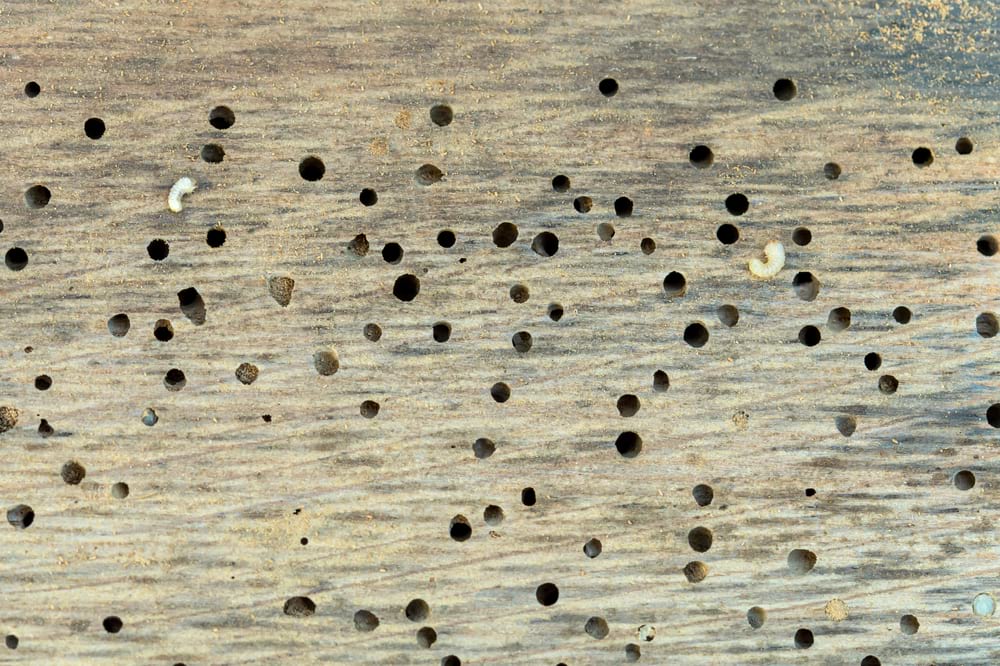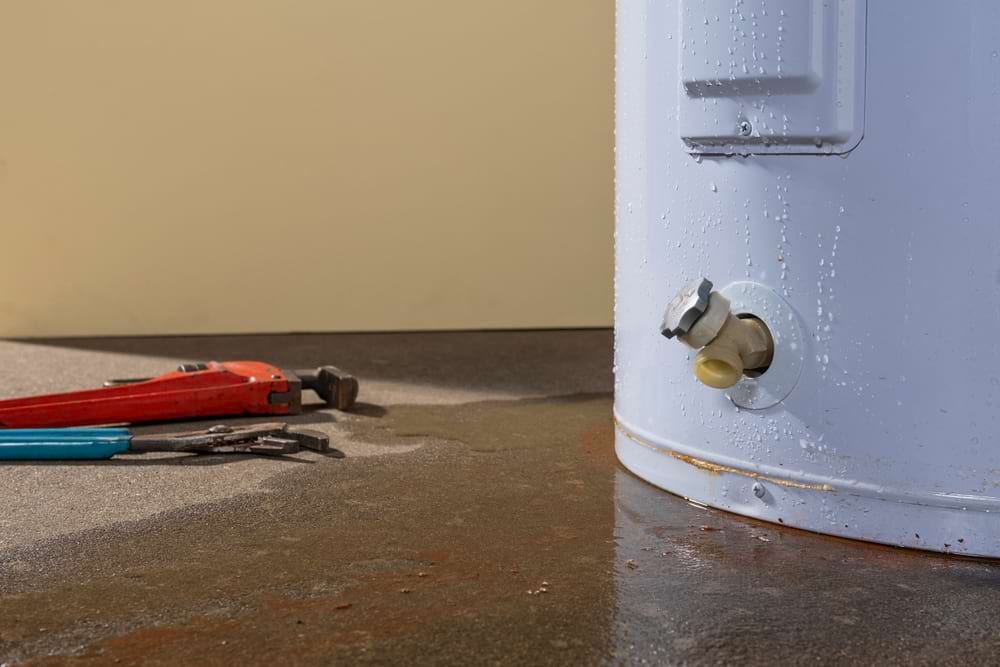Ants are a common house pest in the UK.
Most homeowners are familiar with them.
However, not many are aware of the extent of property damage they can cause or how to remove and prevent them.
Types of ants
There are 51 native ant species in the UK.
However, only three of these commonly affect homeowners. Here they are, in order of most to least common.
1. Black garden ant (Lasius niger)
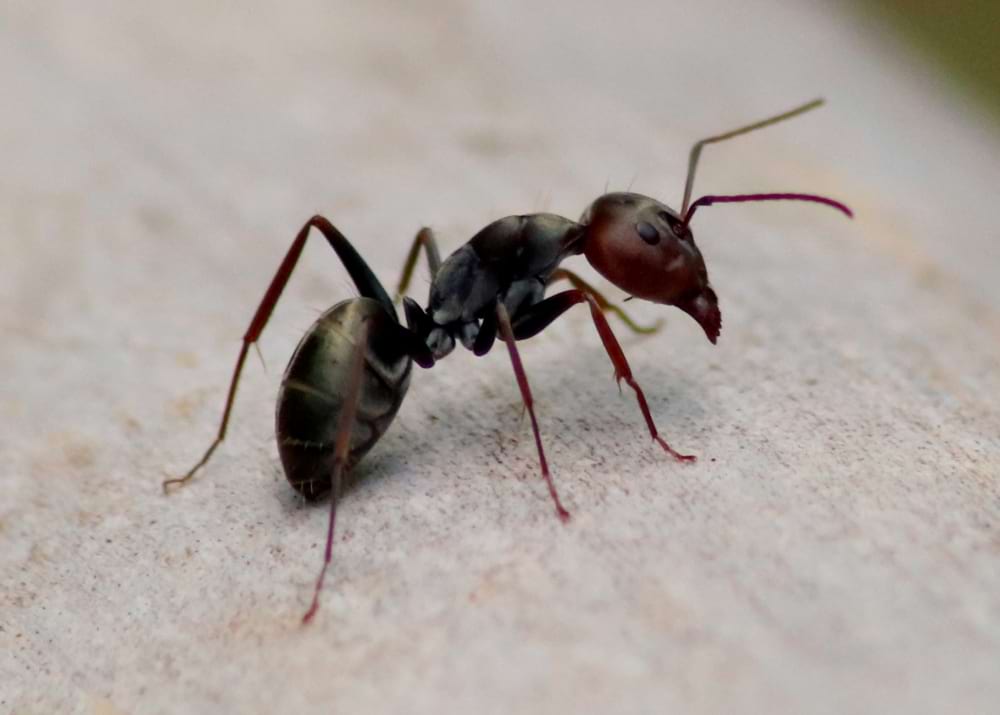
Black garden ants are by far the most common ant species in the UK and the one homeowners are most likely to encounter.
They are generally very small (3 mm) but can live in large colonies (/nests) of up to 15,000.
They are particularly active during the summer months, when some of them have wings.
2. Carpenter ants (Formica ligniperda)
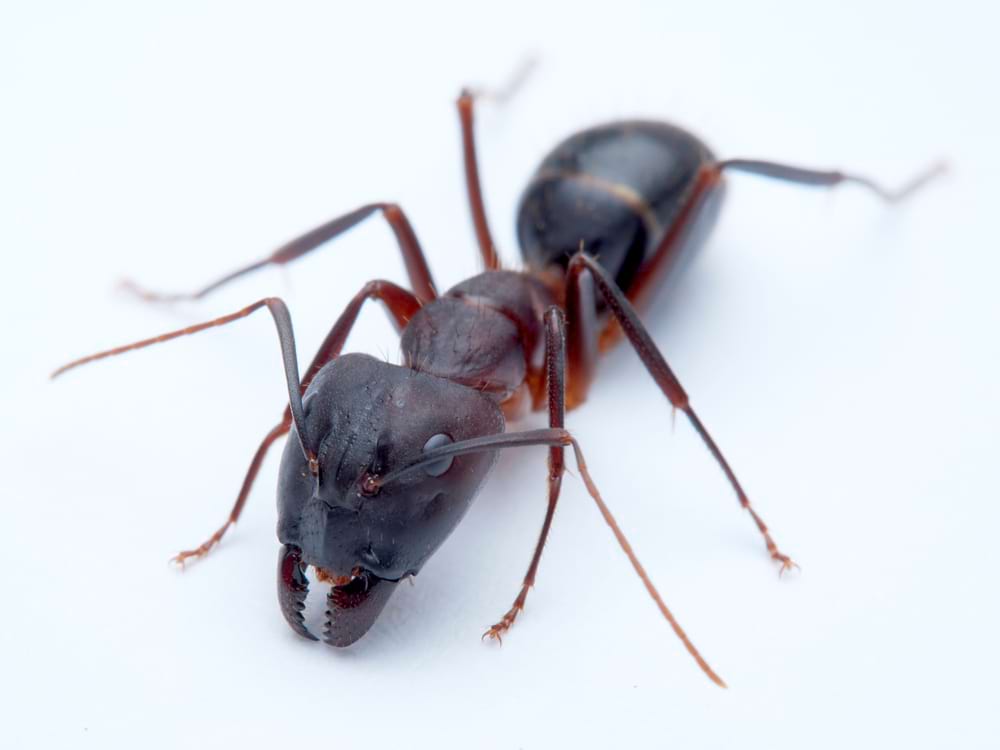
Carptenter ants are rarer than black garden ants but can do more damage.
They get their name from their use of wood to build their nests (a feature of wasps’ nests, too). This means they can damage wooden structures within houses.
They are larger (approximately 6 mm) than black garden ants and can vary in appearance from black to brown to red.
As with woodworms, small piles of wood fragments and visible wood damage are often signs of their presence.
3. Pharaoh ants (Monomorium pharaonis)
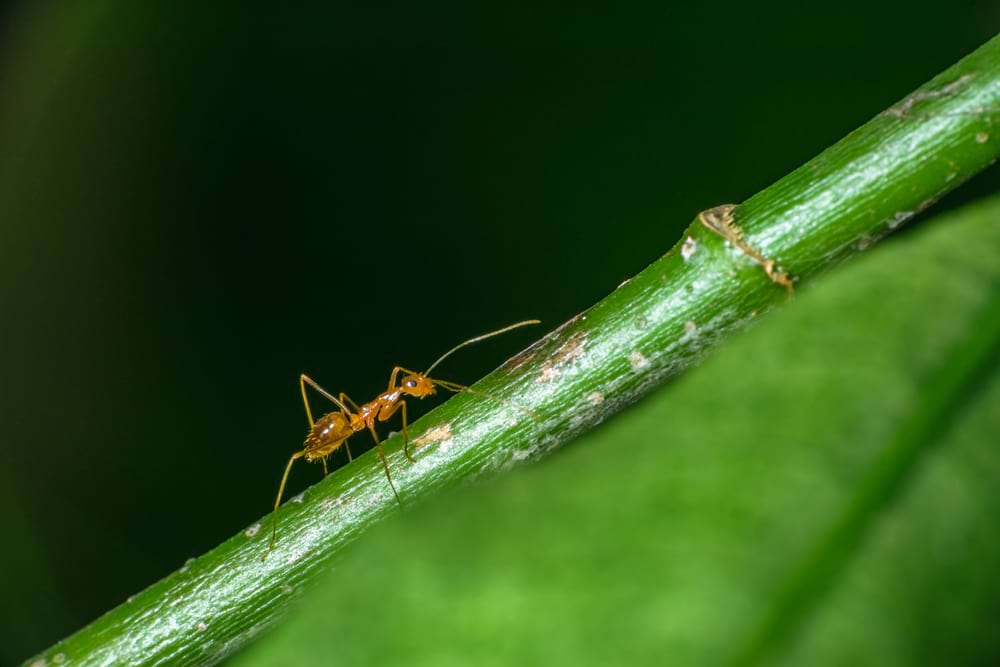
At around 1.5 mm, Pharaoh ants are smaller than black garden ants.
However, they live in much bigger colonies (up to 300,000!) and pose a more serious health risk than black garden ants.
They can carry a range of bacteria and can even bite humans (which can trigger respiratory issues).
Pharaoh ants tend to be found near heat sources in larger buildings, such as hospitals, hotels, and blocks of flats.
Damage ants can cause
Ants can cause a range of damage, depending on the species they are and how long they are left unchecked.
On the lower end of the scale, black garden ants may create an unsightly, small mound in a flowerbed or on a lawn.
At the upper end, carpenter ants can damage a home’s foundation.
Their nests, often found in gardens, might also dislodge paving stones or damage driveways.
Carpenter ants, by contrast, can damage the structural integrity of homes.
They gnaw at wood to use the material for their nests. And they can gnaw through wires, too, damaging electrical circuits.
If they find a vulnerable spot, it could cause severe damage to a home. In the worst-case scenario, they could leave a home in a bad condition.
This is especially true if they enter lofts, foundations, or vital points in timber-framed homes.
The biggest danger from Pharoah ants comes from health risks. They might also cause mild structural and electrical damage, but not to the extent carpenter ants do.
Steps for removing ants
1. Get rid of all food sources
Ants are surviving in your house because they’re able to feed on something.
By eliminating or securing these sources, you’ll have a better chance of eradicating them from the area.
Spills and crumbs on the floor should all be cleaned up. Food in the open (such as fruit) should be covered or stored in a cupboard or sealed container.
2. Seal all the entry points
You’ll need excellent attention to detail for this! Ants can enter your home through even the smallest of cracks and crevices.
You should focus on:
- Walls
- Windows
- Doors
- Pipes
- Floorboards.
3. Consider buying traps and bait
Once you’ve removed the food sources and sealed the entrances, it’s time to get rid of the ants. Ant traps and baits are the best way to do this.
Most hardware stores and supermarkets sell ant traps and bait for around £5.
You then need to place these strategically in your house. Close to ant trails or entry points are the best place.
4. Carry out a deep clean
By this point, the ants should be out of your house. Over several weeks, your ant baits and traps will have caught and eliminated the insects.
Meanwhile, a pest controller could’ve cut off the ants at the source and confirmed that all of them are gone.
At this point, you should get a deep clean of your house. Whether you do this or hire a professional is up to you.
Focus on the areas where you know the ants lived. Sprays, chemicals and elbow grease will remove all evidence and reassure you that the problem is solved.
If you believe you have had carpenter ants, you should check for potential structural damage. And if you’ve had pharaoh ants, you should disinfect everywhere in and around their nest and elsewhere in your home.
5. Put out natural repellents
You should commit to ongoing prevention of ants in your house, where possible.
The entry points will remain sealed, and you’ll be watchful for crumb spills in the future!
But another thing you can do is put out natural repellents. These can be decorative around your property and thus serve two purposes.
Some of the best natural repellents include citrus fruits and peppermint oil. Tea tree oil is a third example.
Additionally, certain plants, such as lavender and mint, naturally repel ants. Placing these around your home could help.
6. Install insect screens
Insect screens are popular in southern Europe, but less so in the UK.
Yet, you can still buy these from lots of shops, and it can make you feel safe that ants won’t come in.
These tend to be fixed to your windows and doors. They can be placed either on the inside or outside of the property. It stops ants from entering.
Pest control experts
If the above steps fail, or you simply don’t have the time or confidence to carry them out, hiring a pest control expert could be your best option.
A typical starting price in the UK is around £150. This will be slightly higher in the south-east of England, or for larger scale ant problems.
